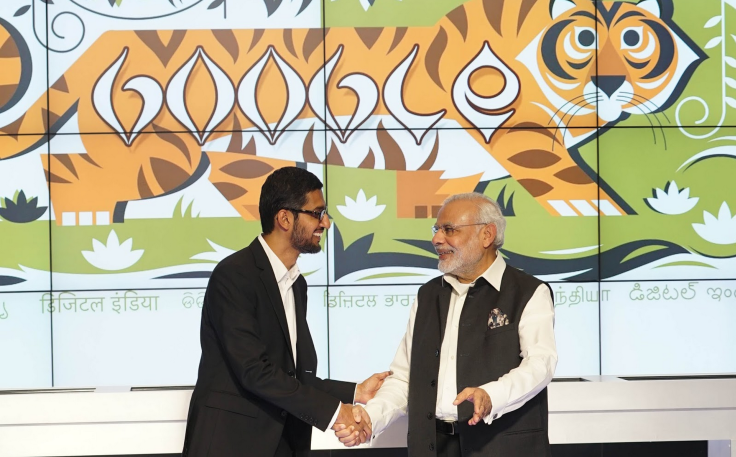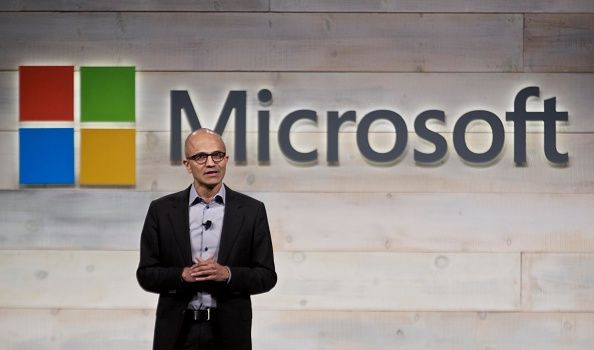Google Will Give Free Wi-Fi To 10 Million People In India As It Continues PR Push In Subcontinent

LONDON -- Google will provide up to 10 million people in India access to superfast Wi-Fi every single day for free as it looks to continue to establish itself as a major brand in the subcontinent.
Google will provide superfast broadband at 100 of India’s railway stations which, given the crowded nature of the system, will reach up to 10 million people every day.
“When I was a student, I relished the day-long railway journey I would make from Chennai Central station (then known as Madras Central) to IIT Kharagpur," Google’s CEO Sundar Pichai said. "I vividly remember the frenetic energy at the various stations along the way and marveled at the incredible scale and scope of Indian Railways."
The initiative was announced by Pichai as Indian Prime Minister Narendra Modi visited the company’s headquarters in Silicon Valley. Google was just one of the stops on Modi’s Silicon Valley trip, which also included a town hall meeting at Facebook’s headquarters with Mark Zuckerberg.
The project’s initial aim is to connect the first 100 stations by the end of 2016, which will make Wi-Fi available for the more than 10 million people who pass through these stations every day with the eventual goal to connect up to 400 stations. This will be the largest public Wi-Fi project in India and among the largest in the world, by number of potential users.
The service will be faster than what most people in India have access to today, with Google promising it will allow travelers “stream a high definition video while they’re waiting, research their destination, or download some videos, a book or a new game for the journey ahead.”
Access to the superfast Wi-Fi network will initially be free with the long-term goal of making it self-sustainable to allow for expansion to more stations and other places in the future by working with Indian Railways and RailTel, which provides Internet access along the railway infrastructure.
Pichai is among a growing number of Indians and Indian-Americans heading up major U.S. technology firms, a group which also includes Microsoft CEO Satya Nadella and Shantanu Narayen, CEO of Adobe for the last decade. Some 26 percent of tech companies in Silicon Valley are founded or run by Indians and Indian Americans.

India is set to be one of the most lucrative markets for U.S. technology companies in the coming years, with over one billion people yet to connect to the Internet regularly, and with smartphone penetration still at under 15 percent.
Google is making significant efforts to establish itself as the number one platform in the subcontinent, with its Android One project aimed at allowing companies develop lower-priced smartphones for developing markets. However a year after it launched, Android One has not been the success Google hoped for, with local manufacturers and budget Chinese brands including Xiaomi and Lenovo offering better options to customers.
With India set to overtake the U.S. as the world’s second biggest smartphone market -- behind China -- in 2017, all smartphone manufacturers will be keen to establish a presence in this market, but with local players like Karbonn, Micromax and Lava.
However it is not all positivity surrounding Modi and his government’s push to connect the country, with many calling his Digital India initiative -- which aims to get one billion people online -- a front for mass surveillance. This claim was backed up by a recent draft encryption law, which received widespread criticism for its demand that all citizens keep unencrypted records of their digital communication for up to 90 days and that all tech companies hand over encryption keys for their messaging services. The draft law was quickly pulled by the Indian government, which said it needed to be reworked.
Ahead of Modi’s visit, over 100 academics at U.S. universities signed a letter warning major technology companies of the risks of doing business with a government that has “demonstrated its disregard for human rights and civil liberties, as well as the autonomy of educational and cultural institutions.”
© Copyright IBTimes 2025. All rights reserved.




















